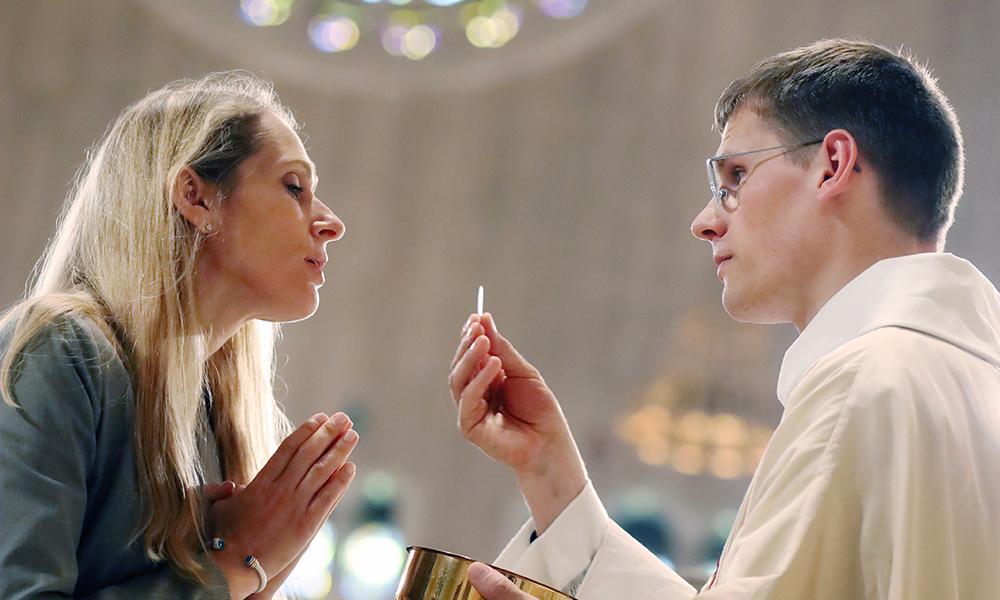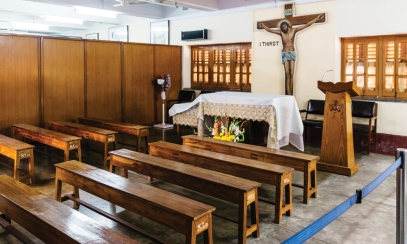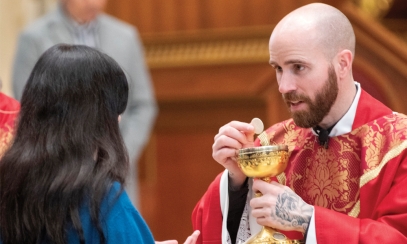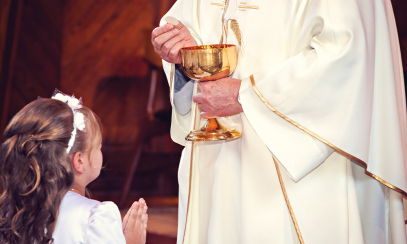
How long does the Real Presence last?
Question: How long does the unique, sacramental presence of the resurrected Christ remain with us after we receive him in Holy Communion?
Question: How long does the unique, sacramental presence of the resurrected Christ remain with us after we receive him in Holy Communion?
Answer: “The Eucharistic presence of Christ begins at the moment of the consecration and endures as long as the Eucharistic species subsist” (CCC 1377).
Jesus’ unique eucharistic presence only remains with us for as long as the species of bread and/or wine exist within us after Holy Communion. Our bodies digest the Eucharist, and once the species of bread and wine are no longer present, neither is Jesus’ eucharistic presence. The good news is that, even after this special eucharistic presence leaves us, as long as we remain in the state of grace (free from grave sin), the Holy Trinity continues to remain within us spiritually. God dwells within us as in a temple.
This teaching of the Church demonstrates the value of the minutes that follow Holy Communion. After receiving the Eucharist, each of us is like Mary at the Annunciation when she said ‘yes’ to the angel’s proposal to be the Mother of the Lord. When we receive the Eucharist under the form of bread or wine or both, we too become living tabernacles of Jesus – the second person of the Trinity with his divine nature, human soul, precious blood and resurrected body!
There is an ancient Byzantine hymn called the Akafist which speaks of the Blessed Virgin Mary as “the container of the uncontained God.” In a very real sense, this is us too, in those precious few minutes immediately following Holy Communion. And this is why the Church encourages us to pour out our hearts to the risen Lord who is really within us after Holy Communion – not just spiritually, but with his glorified body and human soul.
We can think of how the hemorrhaging woman in the Gospel found strength and healing simply by touching Jesus’ garment. How much more can we experience an outpouring of grace when we worthily receive the Lord himself in Holy Communion, even though he remains humbly “disguised” as bread and wine in the Holy Eucharist.
For additional reading: The Catechism of the Catholic Church (CCC 1322-1419)



